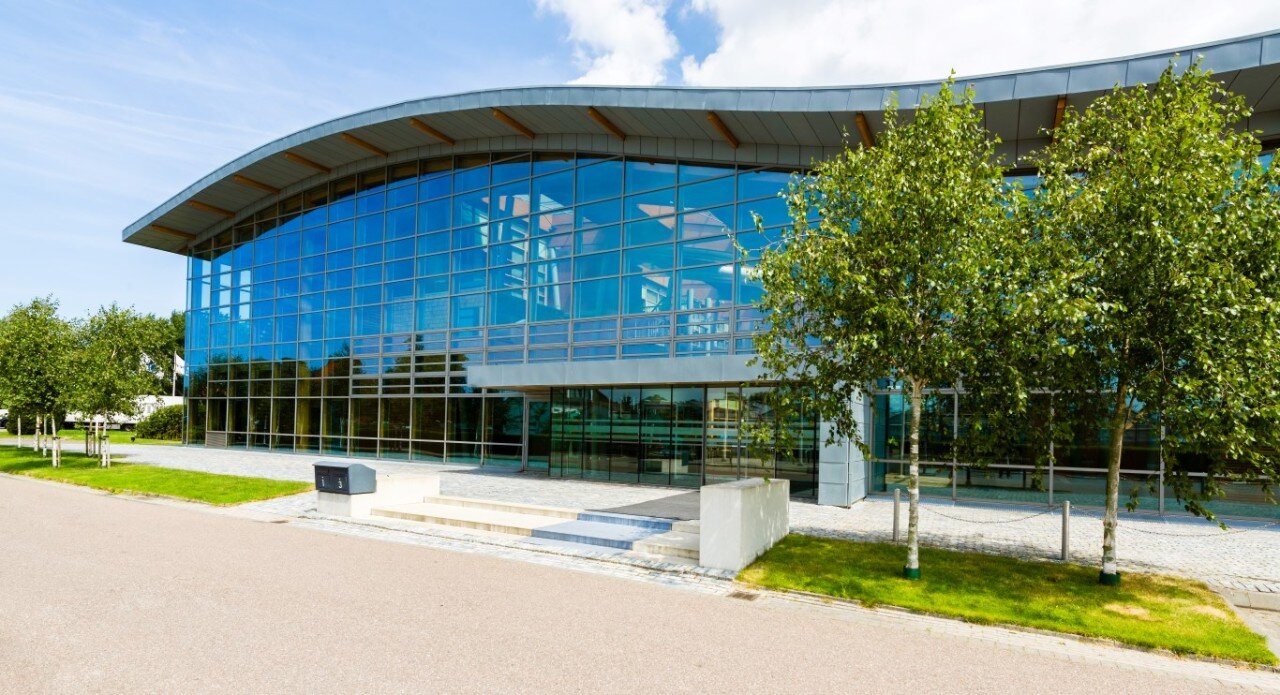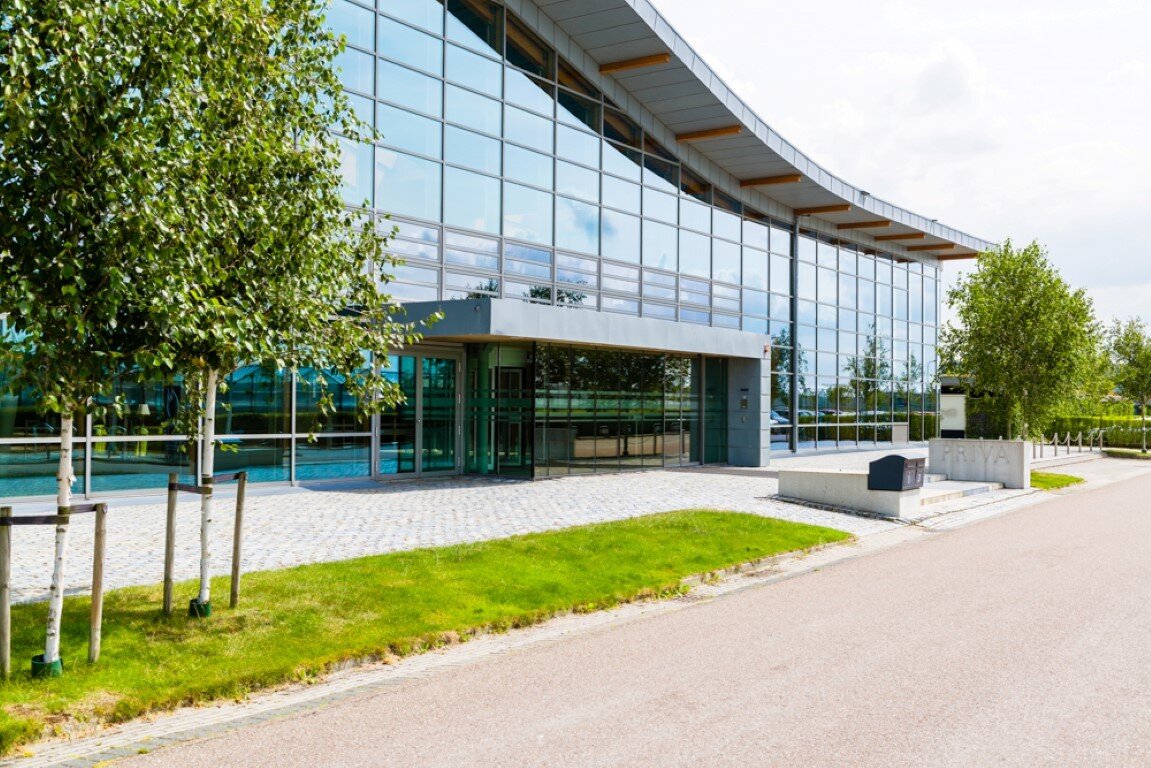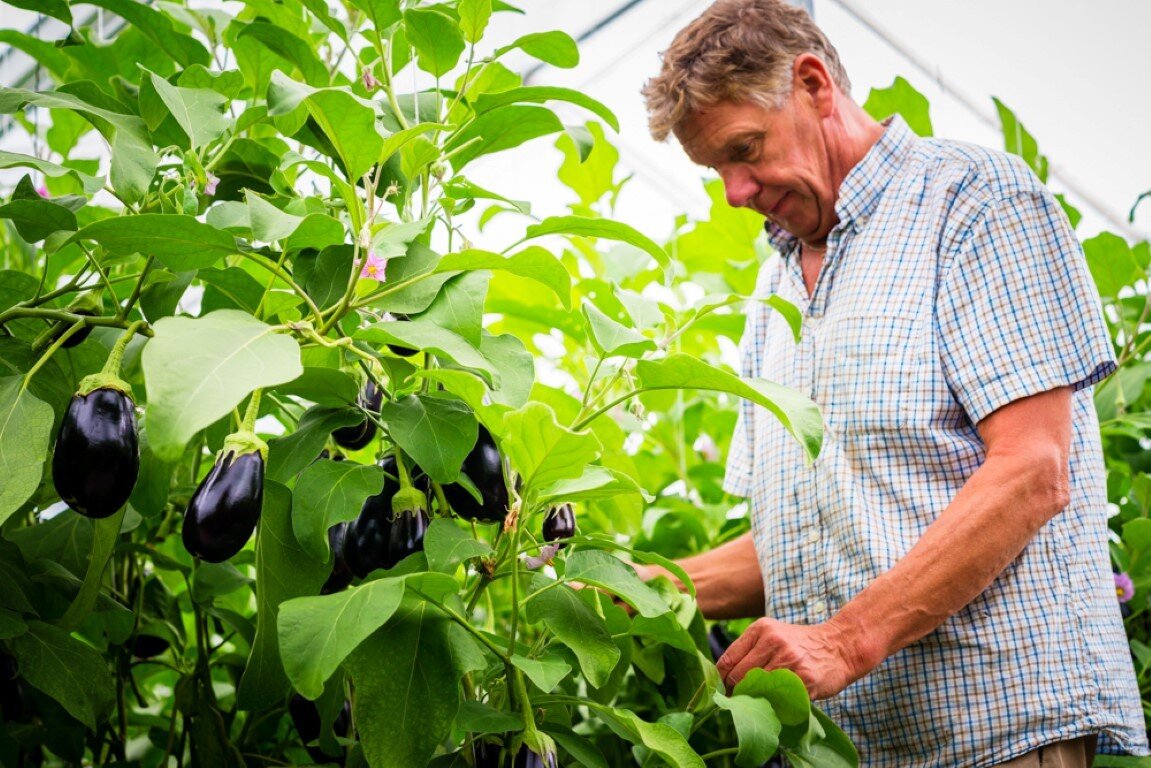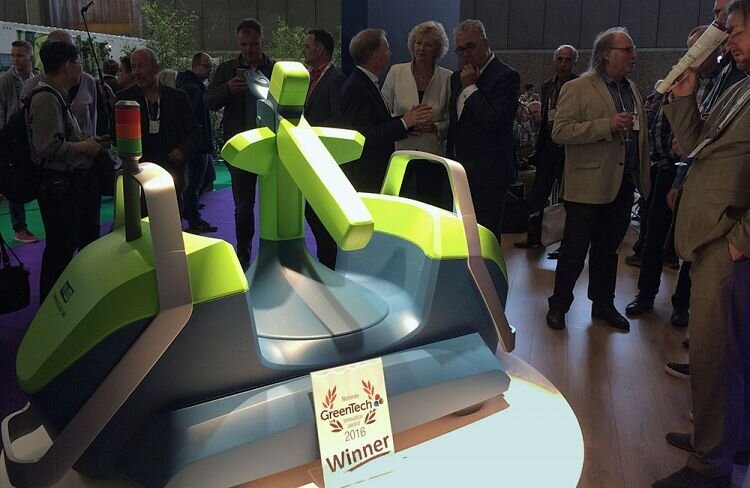Dec 2, 2017
Chatting With The Superwoman Of Dutch Horticulture, Meiny Prins

Editor’s note: This information was derived from an interview with Meiny Prins, CEO of Priva, conducted by Andrew Blume, the Strategic Sales Manager at IronOx, and Chris Powers, Co-founder at Reciprocity Apps. Link to Original Post.
For the October 2016 AVF Changemaker of the Month, Andrew and Chris had the opportunity to sit down with Meiny Prins. Meiny is the CEO of Priva and the founder of Sustainable Urban Delta. Both Chris & Andrew came away from the conversation with the impression that Meiny is a visionary who is forging great progress in global sustainability. We hope that you enjoy this insightful interview with Meiny Prins, The Superwoman of Dutch Horticulture.
Andrew: Priva is a company with impressive longevity, having been in business since 1959. In that time the company has built a reputation for innovation, with products such as the first horticulture climate computer and de-leafing robots. But let’s start our conversation with the other pillar that Priva has built your reputation on, which is sustainability. Meiny, can you tell us about winning a Cleantech Star with the World Wildlife Fund (WWF)?
Meiny: It was the first time that the WWF really embraced technology development as the solution for big environmental problems. It was an example of nature and technologists coming together.
The horticulture business in the Netherlands was the only industry that increased yields and productivity while also reducing resource use, like gas and water. Of course, other industries were growing economically, but everyone was using more and more fossil fuels. The only one that was turning the curve in the other direction was the horticulture industry.
We looked at the effect of reducing energy with building and horticultural automation and we were surprised ourselves by the enormous impact on CO2 reduction this had
We were happy to win the WWF award and to accept the challenge of being a role model for environmentally friendly businesses.

Chris: Is that what gave you the idea to start Sustainable Urban Delta?
Meiny: My vision on creating sustainable urban deltas started already in 2007. People moving towards cities, cities situated in deltas and cities putting more pressure on sustainable developments than governments did. So, with Priva we initiated different projects like Hoogeland (greenhouse heating an urban area) or Ecfutura (fish- and tomato growing) to show that technical solutions are already available to solve many environmental problems. But we keep systems alive that prevent us from major breakthroughs!
Here are a few trends that will be massive in the next few years:
2017 - nanotechnology in microchips
2020 - low-cost robotics
2025 - solar energy as a main source of electricity
It’s shocking for technology companies. The companies who are saying “no, these changes won’t happen” are often those who don’t want it to happen. Technological developments are going very fast.
Andrew: I like your tone of optimism. When cities start investing in technologies to make urban living better, they will make life better for everyone. It’s like the saying - think globally, act locally.

Meiny: Yes, cities are finding interesting ways to invest in their own resilience. For example, if you look around major cities, you can find green belts where there are small farms. Cities recognize the importance of these food-producing farms and are adopting measures to encourage and protect them.
China is especially adamant about food stability. If investors want to work on apartment towers in cities that are growing beyond 5 million people, the government requires that those real estate investors who are putting money into the city MUST also invest in the rural farming areas surrounding the city as well.
At the same time, everything is becoming more connected together. In some cases, these urban areas are becoming dedicated food producing areas for cities. I think that the next generation of growers will be in the city.
Chris: In the next 3-5 years, what are some of the most exciting technologies and largest opportunities that will disrupt the status quo?
Meiny: I think it will be the sharing economy like AirBNB, Uber and other innovations that are coming out of cities. When I was in Capetown, South Africa I had an uber driver deliver food to where I was staying. You can track the drivers so you know where your food comes from.
Think about being a grower in a city who wants to supply your customers - normally the logistics can be one of the most expensive and challenging parts. Having a traceable distributed transportation network helps to solve some of those problems.
Andrew: How did you start finding your voice and how did you get started in the industry?
Meiny: I started as a teacher. I did that for a couple of years. Then I wanted to become a graphic designer so I went to the academy of fine arts and design. During that time I think I learned a lot about conceptual thinking. Afterward I started my own design company which eventually grew to 20 employees. Around that time my dad became to the age where he wanted to take a step back from running Priva, but he still wanted to keep it family owned. So he asked me if I was interested in getting into the business.
While I was building my design company, I had established a lot of relationships with Dutch growers in the industry. I was part of their work during the nineties for how to brand many varieties of produce and I loved working with growers. So most of the larger growers in the Netherlands knew me already. For me that was a good way to get into the business.
Priva is a building- and horticultural process automation company for climate, water, and energy. That’s very technical, but when I started out as a designer, I was working with growers on the marketing side. So when I stepped over to Priva I had to learn the technology side.
It’s not necessary that you are a technical person to work at Priva, we need creative people too.

Andrew: Did working as a teacher and being with young students influence your desire to get into sustainability?
Meiny: The first steps happened when I started to work at Priva. I realized that the products we were developing were increasing yields while also saving water and energy and no one really talked about that the impact that has. I started to realize how much value this had. It was so obvious to connect sustainability and profitability. If you can help people to make more profits in a way that’s better for the environment then it makes sense.
An advantage of having a family-owned company is, that profit is not the goal itself, profit is only a way to continue your business and make sure you can make a difference in the world. We are a company focused on purpose maximization and not profit maximization. If everyone in the world would move that way, we would be much better off.
At the same time, we have proved that sustainability can be highly profitable. It is so nice to see growers to increase their yields while using less water and nutrients.
Chris: I think that ties into circular economy concepts and redesigning the flows of resources. Is there anything you wanted to talk about relating to the circular economy?
Meiny: Because of our vision of the world might seem vague to some people, we like to make it practical. 10 years ago we started finding projects that were visualizing the new world. Some of our projects included:
● A greenhouse that shares heating / cooling with a neighboring city to close energy loops.
● A pilot project to use waste-water for food production
● A floating cow farm that children can visit to see how milk is made.
● Involved in efforts to restore the wasted agricultural lands around Perth, Australia where they have to fly food into the city currently.
Andrew: Speaking of Priva’s vision, I was at the 2016 Greentech Exhibition in Amsterdam when I noticed a big crowd gathering. The crowd was gathering for the introduction of Priva’s de-leafing robot. Can you tell us more about that project and how it got started?

Meiny: It started 10 years ago. There was a question from a big group of tomato growers in the Netherlands (100 or so at the time.) Deleafing tomato plants accounted for about 30% of the labor cost. So that group of growers invested ⅓, Priva invested ⅓, and we partnered with the government for the last ⅓ of the funding.
We restarted three times along the way. The most challenging part was the cost of the robots. The breakthrough that made the robot possible was a low cost camera technology that came from the mobile phone market.
See this video of the Kompano Deleafing Robot in action
In the future, these robots will be able to do basic labor and manage tasks like pest control, disease control, and more. The machine vision technology may be very new, but it will add more and more functions to the robot in the future. We have to be our own disruptors, otherwise Priva won’t exist in the future.
Andrew: It sounds like there were many iterations along the way to you taking that bold step. Can you also tell us more about any similar experiences you may have had in affecting policy?
Meiny: I think this is why I was proclaimed businesswoman of the year in 2009. For that award you really have to invest society next to running your own business.
Becoming businesswoman of 2009 opened many doors. I was able to help with policy making at the time. I had a chance to meet a lot of ministers. Then today I am a member of the Dutch Trade & Investment Board and I am part of the Committee for Entrepreneurship and Finance with Queen Maxima of the Netherlands. This committee is very involved with microcredit: stimulating entrepreneurship in The Netherlands and helping to create the right circumstances for entrepreneurs.
Andrew: You speak about making a better society, many people agree that education is quite important to that end. You serve on the board on Agrown as well, which strives to increase education availability in our industry - helping people learn to operate greenhouses and indoor vertical farms. How did that get started and can you tell us about your collaboration with Agrown?
Meiny: That project is just starting. I was advised by our manager in Canada who suggested that I meet someone who was developing a platform to help educate greenhouse growers. I think that’s good for everyone. You see more and more now that knowledge is spread out for free.
In China, the United States, and many countries throughout Europe, there are two things that people are struggling with:
1. Education - or how to make it as easy as possible to teach people how to grow, even just the basics
2. How can we make the younger generation enthusiastic to be growers in the first place?
We are also developing a platform for sharing our Priva knowledge with our customers and partners. It’s very nice to bring different parties together from the industry to start working on this.
Chris: Is there anything that you would like to mention or anything you’re most excited about?
Meiny: We didn’t mention www.vertical-farming.net yet. There are all kinds of farming. Vertical farming, rooftop farming, greenhouse farming, indoor farming: we already know that indoor farming will be the major breakthrough the coming years for young plants, medicals, pharmacy, food, vitamins, flowers and more!
I like the idea of all those kinds of farming and new innovations that create new value chains and new kinds of business. I like how the value of real estate increases when having a greenhouse on a building, or the value of social tolerance that you can create in a neighborhood. This is the big adventure for many of us being involved in this sector.
Andrew: That ties together the mission of building sustainable communities, which is a journey we are on with the AVF. Can you speak about why Priva joined the AVF and how we can continue to work together?
Meiny: Priva is also a crossover organization since we came from horticulture and building automation and now we are discovering the worlds between those two domains and that’s exciting. We have of course our current business which is extremely important for us, but learning from other developments around the world will help us in developing new businesses. That’s why we are with the AVF, to see what we can learn from each other.
The idea that you can do everything alone is in the past. In the future we have to find all kinds of partners and new ways of working together to speed up developments, by helping each other. It’s all about being connected together and helping each other.

Andrew: We have a few rapid fire personal questions so that our audience can get to know you better. Let’s start with: what makes you happy?
Meiny: To see the new technological possibilities and the mindset of those people who are bringing about that change. I’m happy about people.
Andrew: Who or what inspires you?
Meiny: Many people inspire me. It’s not like one person or book, it’s more about the people I meet on my trips and travels that helps give me the ideas I like to bring together, visualize and share with others.
Andrew: What are you going to do right after this interview?
Meiny: Haha, I’m going to bike back home. I have my bike with me and I’ve been sitting in airplanes and the office too long so I need some movement. I like biking and I like cooking, that is my personal time during the day.
Andrew: What’s your favorite dish?
Meiny: I love vegetables so that’s most of what I cook.
Andrew: Meiny, thanks so much for taking the time to share your story on this interview.
Meiny: Thanks for having me. We will have to visit next time I am in LA.
